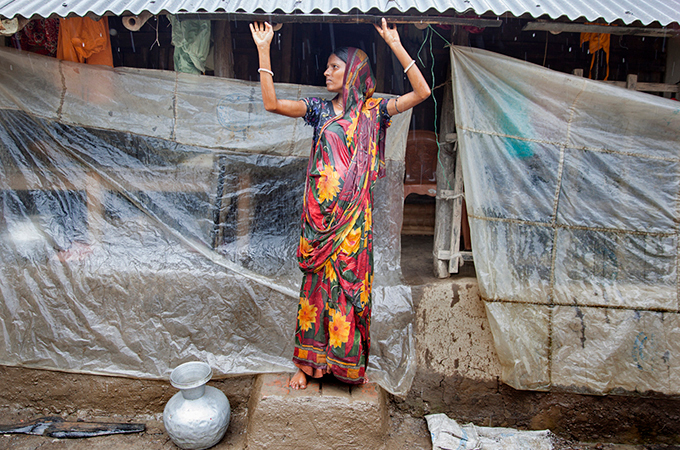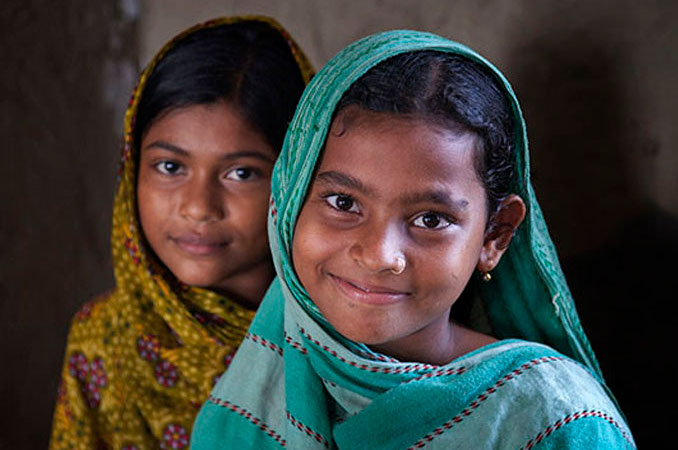Every day, in Bangladesh, 20 million people are exposed to arsenic, a silent killer, present in the country’s underground waters and the cause of many diseases. SOLIDARITÉS INTERNATIONAL is setting up a project designed to harvest rain waters. This is a solution which could change the lives of Lima, 22 and little Nayan, 10, among many others.

An invisible enemy
Arsenic has been poisoning entire generations of Bangladeshis for many years. Present in underground waters of Bangladesh, it causes cancers, skin infections, current stomach pains or muscular aches. This bad health state is painful and also has an impact on the economic and professional situation of the people. On top of this plague, the populations of Bangladesh have to face another problem: every year, hard rainfalls affect the country, and because of the floods, sea water overruns groundwater, creating high-salinity water which causes diarrhoea, hypertension and diabetes.
Nayan Tara, 22, regularly drinks contaminated water: “Water, water, and water again… There is water everywhere but there is not a single drop that is drinkable. It is very long for me to draw water, often contaminated, from the closest well. Another well exists, not so far, but it is contaminated too,” she tells. “We know that arsenic is poison, but we don’t have another choice. We have to drink and to cook with this contaminated water. My husband has hip and neck pains, my son has stomach pains and a skin infection,” the young woman adds.

7 out of 10 can’t drink safe water in Bangladesh
This is the same analysis about the little Lima, who has to drink unsafe water, as all the other children of her village. “I often have fever and diarrhoea. I know it’s because of the water”. The little girl is telling us than water from this pond is also used by people to wash themselves and by animals. Toilets, and their wastewater, are also next to this watering hole, which contributes to the contamination. Nayan Tara adds she spends “2 hours a day to draw water”, and she would prefer to “spend this time to work, earning money for her family”.
Rain water harvest: a revolution in Bangladeshi’s lives
SOLIDARITÉS INTERNATIONAL has thought of a simple solution which would improve the daily lives of the populations affected by lack of water: collecting rain water which falls abundantly during the rainy season. An effective and cheap solution, if water is stocked and filtered in a good way it can be drunk directly. A pilot project has been set up in the Satkhira district, where families are implied and trained to manage this system. This system will permit to 51 households to have drinkable water.
This project has been spread to the Fatik-Khali Primary School , Lima’s school, to allow students to go to school without thinking about how to drink. “Today, there is no water point near the school, and if I forget my bottle the morning, I can’t drink all day long, tells the little girl. It’s hard for me to carry my books and my bottle in the same time. I would be very happy if there was a fresh water source near our school”.
In its early stages, this project should allow 222 members of the community and 130 pupils and teachers of the Fatik-Khali school to drink fresh water on a daily basis.
Photos : © Prince Naymuzzaman Khan / SOLIDARITÉS INTERNATIONAL
Support us to reach as many families as possible
Bangladesh
Context and action- 165.65 million inhabitants
- 129th out of 191 countries on the Human Development Index
- 29.780 people helped

